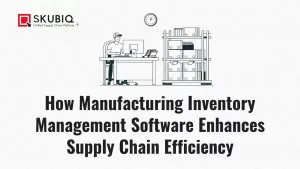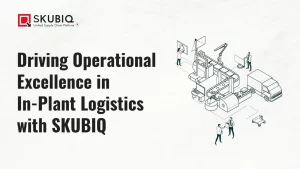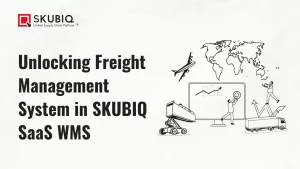In the intricate web of modern commerce, supply chain issues can present significant challenges to businesses. The seamless flow of products from manufacturers to consumers is crucial for success, and any disruptions along the way can lead to lost revenue, dissatisfied customers, and operational inefficiencies. One key player in addressing and resolving these challenges is a sophisticated Warehouse Management System (WMS). In this article, we’ll delve into the world of supply chain management and explore how a well-implemented WMS can effectively tackle various issues to create a more efficient and resilient supply chain.
Understanding Supply Chain Management Challenges
Supply chain issues can manifest at various stages of the supply chain, from procurement to production, distribution, and ultimately reaching the end consumer. Logistical hurdles, delays, and inadequate inventory management are just a few examples of the myriad challenges businesses face. Efficiently managing these complexities is vital for sustaining a competitive edge.
The Role of Warehouse Management Systems (WMS)
At the heart of addressing supply chain issues is the implementation of robust warehouse management systems. A WMS is a software application designed to optimize and automate various operations within a warehouse. From inventory tracking to order fulfillment, a WMS streamlines processes, providing real-time visibility and control.
Warehouse WMS and Inventory Control
Supply chain and inventory control are intrinsically linked. Inadequate control over inventory can result in overstocking or stockouts, both of which can have dire consequences for a business. A WMS enhances inventory management by providing accurate, real-time data on stock levels, helping businesses make informed decisions about procurement and preventing costly errors.
Addressing Logistical Issues Through WMS
Logistical challenges are a common source of supply chain issues. Delays in shipping, inefficient routing, and poor coordination between various stakeholders can disrupt the flow of goods. A WMS integrates with other systems, such as transportation management systems (TMS), to optimize routes, track shipments, and ensure timely deliveries. This integration enhances overall logistics efficiency, reducing the likelihood of delays and improving the reliability of the supply chain.
Enhancing Customer Service in Supply Chain Management
In the modern business landscape, customer satisfaction is paramount. Customer service in supply chain management plays a crucial role in retaining clients and attracting new ones. A WMS contributes significantly to this aspect by improving order accuracy, reducing lead times, and providing better visibility into order statuses. These factors collectively contribute to a positive customer experience, fostering loyalty and repeat business.
The Benefits of a Well-Integrated WMS System
1. Stock Management System
Efficiency is the cornerstone of a successful supply chain. A well-integrated WMS system optimizes warehouse processes, from receiving and storing goods to picking, packing, and shipping orders. This efficiency translates to quicker order fulfillment, reduced labor costs, and ultimately, a more competitive and agile business.
2. Overcoming Inventory Management Challenges
Inventory management challenges often stem from inaccurate data and manual errors. A WMS mitigates these challenges by automating inventory tracking, minimizing discrepancies, and providing real-time insights. Accurate inventory data enables businesses to maintain optimal stock levels, preventing excess inventory costs and stockouts.
3. Streamlined Supply Chain Management
A WMS acts as a central hub that connects various elements of the supply chain. It integrates with other enterprise systems, such as Enterprise Resource Planning (ERP) and Customer Relationship Management (CRM), creating a seamless flow of information across the organization. This streamlined communication enhances collaboration, reduces silos, and improves overall supply chain management effectiveness.
4. Realizing the Full Potential of Warehouse WMS
The benefits of a warehouse WMS extend beyond the confines of the warehouse itself. By providing end-to-end visibility, a WMS enables businesses to make data-driven decisions that positively impact the entire supply chain. This visibility is crucial for anticipating and addressing potential issues before they escalate, fostering a proactive approach to supply chain management.
5. Adapting to Change with a Robust WMS
In a dynamic business environment, adaptability is key. A well-implemented WMS allows businesses to adapt to changes in demand, market conditions, and emerging trends. With real-time data at their fingertips, decision-makers can adjust inventory levels, distribution strategies, and other parameters to align with evolving business needs.
Conclusion
In the complex landscape of modern commerce, businesses must navigate various challenges to maintain a resilient and efficient supply chain. Supply chain issues can arise at any stage, but a strategic investment in a robust WMS system can provide the solutions needed to address and overcome these challenges. From enhancing inventory management to streamlining supply chain management and improving customer service, a well-integrated WMS is a valuable asset that contributes to the overall success and sustainability of a business.
As the business landscape continues to evolve, those equipped with an efficient WMS are better positioned to not only resolve current challenges but also adapt to the uncertainties of the future.



